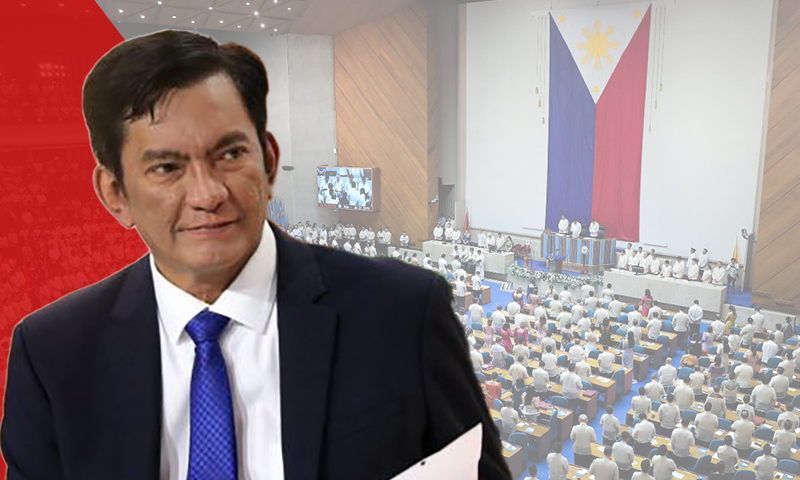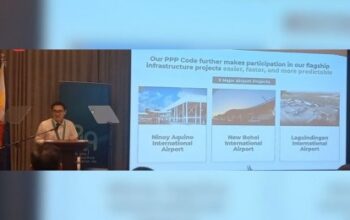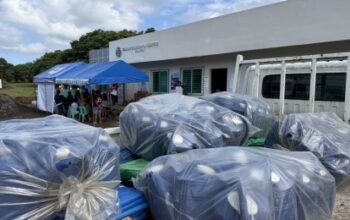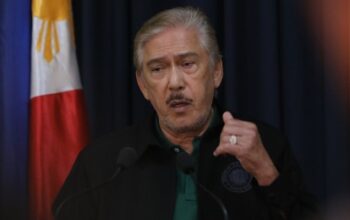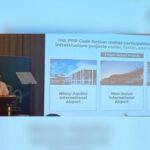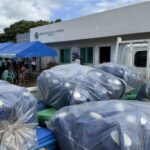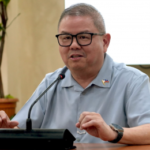European Union (EU) Ambassador to the Philippines Luc Veron has acknowledged the assurance of support made by Albay Rep. Joey Sarte Salceda, to help improve the international training standards of Filipino seafarers as the European Maritime Safety Agency (EMSA) conducts its audit this month.
Salceda chairs the House Ways and Means Committee. In a sent to him, dated November 10, Veron thanked Salceda for, raising the “particular significance” the EMSA inspection report has for his “constituency in Albay province,” and his support for “Philippine compliance with the International Convention on Standards of Training, Certification and Watchkeeping for Seafarers (STCW).”
“…The authorities of the European Union are aware of the economic and social significance that the employment of Filipino seafarers has for the Philippines, but also for the European Union,” the ambassador wrote.
Salceda had earlier written Veron to assure him of Congress’ full support for improving the training standards for Filipino seafarers as EMSA undertakes an audit of the country’s compliance with international training standards.
“Europe-hired Pinoy seafarers are some of our highest foreign currency earners. They account for some 50,000 very well-paid jobs. And we could lose a big number of those jobs if we fail the EMSA audit once again this November,” Salceda wrote in his November 3 letter to the ambassador.
“In view of the EMSA audit for compliance with the International Convention on the Standards of Training, Certification and Watchkeeping for Seafarers (STCW) this November, and in view of the urgency of keeping logistics secure during this turbulent period for the global economy, please be reassured of my full support for any initiative you may forward on the subject,” Salceda stated in his letter.
“As a senior member of the Congressional leadership team, I would like to express my interest in working with the European Union’s delegation to the Philippines to forward the interests of both Filipino seafarers and European shipping and logistics on areas such as Filipino seafarer training,” he added.
Aside from the House Ways and Means panel, Salceda is also a senior member of other major committees, among them the House trade and industry committee.
I understand that the findings of the EMSA over the past years put at risk the eligibility for employment of some 50,000 Filipino seafarers, many of whom are my constituents,” said Salceda, referring to seamen coming from Albay.
The lawmaker also offered to boost local efforts of the EU delegation to help Philippine maritime schools improve their training program. “Likewise, allow me to offer my district office’s interest in working with the European delegation on improving the training capabilities of maritime schools in Albay province, which I represent,” he said.
He noted that “over the past few months, the European maritime industry has relied heavily on Filipino seafarers, who are culturally predisposed towards the West. They have very few problems with us culturally, but we need to boost our training and take serious heed of the concerns of EMSA. We have been failing their audits for at least 16 years already.”
Salceda said keeping the EU-hired seafaring jobs is critical as the country protects its foreign currency reserves and seeks to recover from what he calls “a fluid domestic jobs situation.”
He added that while “EU is unlikely to ban Pinoy seafarers from their flagged ships, some companies are doubtless going to take seriously the EMSA findings this year. And if the findings are too adverse, some of them might hesitate if not avoid hiring Filipinos. That will surely hurt jobs in the sector.”


